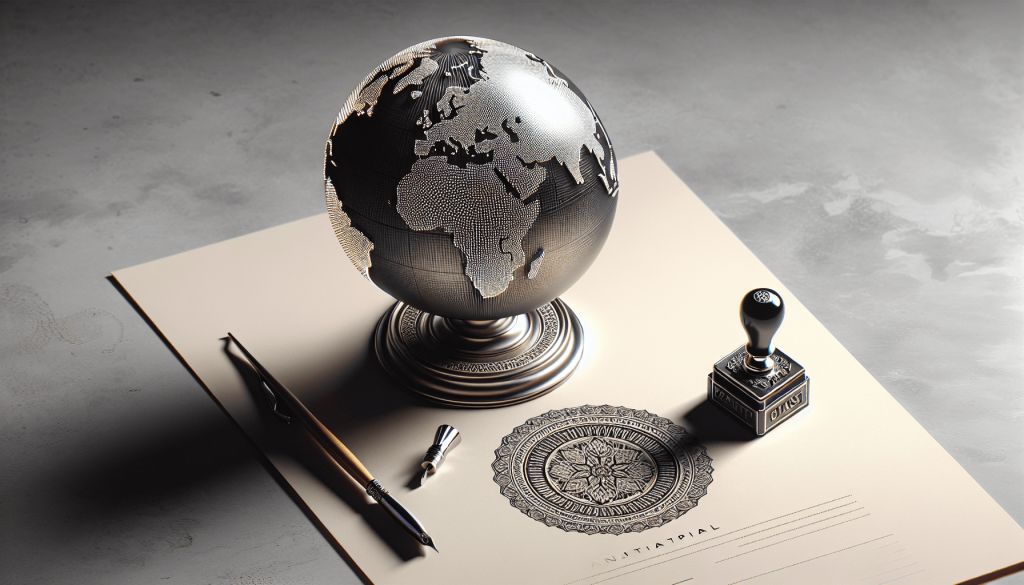Have you ever found yourself wondering why certain documents require special stamps or seals when used in a foreign country? This process, often involving apostille and authentication services, ensures your documents are recognized internationally. So, why might someone need apostille and authentication services for international use?
Listen to Our Podcast Episode below

Understanding Apostille and Authentication Services
To appreciate why these services might be necessary, you’ll first need to understand what they are and how they work. Let’s break it down.
What is an Apostille?
An apostille is a form of certification issued under the Hague Convention of 1961. It authenticates the origin of a public document, such as a birth certificate, marriage certificate, or diploma, making it admissible in member countries of the Hague Apostille Convention.
What is Authentication?
Authentication, similar to apostille, validates a document’s veracity. However, it includes multiple stages of verification and is used for countries not participating in the Hague Convention. The ultimate goal is the same: certifying documents for international use.
Reasons You Might Need These Services
The need for apostille or authentication services can arise for various reasons. Here are some common scenarios:
International Business Transactions
If you’re involved in international business, you may need to provide authenticated documents to foreign authorities. This can include incorporation papers, contracts, or licenses.
Studying Abroad
Students aspiring to study abroad might be required to furnish educational records like diplomas or transcripts. These documents often need to be certified to meet the educational institution’s requirements.
Employment in a Foreign Country
Job seekers aiming to work overseas might need authenticated professional credentials or background checks. Employers often require these documents to ensure the authenticity of the candidate’s qualifications.
Adoptions
International adopters might need authenticated documents, including birth certificates and adoption papers. These documents must be recognized by foreign agencies involved in the adoption process.
Relocation and Residency
When moving to another country, you might need to present authenticated documents such as marriage certificates, birth certificates, and police clearance records. These documents are crucial for visa applications and residency permits.
The Process: Apostille vs. Authentication
Though both processes aim to validate documents, they differ significantly.
Apostille Process
The apostille process is relatively straightforward. Here’s a simplified breakdown:
- Document Preparation: Start by ensuring your document is a public record.
- State-Level Authentication: Get your document certified by a relevant local or state authority.
- Apostille Issuance: Submit the document to the designated authority for apostille issuance.
Authentication Process
The authentication process is more intricate, especially for non-Hague Convention countries:
- Initial Certification: Obtain initial certification from a local or state authority.
- State-Level Authentication: Get further authentication from a state authority.
- Federal Authentication: Submit the document for federal authentication.
- Consular Legalization: Finally, get the document legalized at the consulate of the destination country.

Commonly Apostilled or Authenticated Documents
Certain documents frequently require apostille or authentication services. Here’s a table highlighting some common examples:
| Purpose | Document Type |
|---|---|
| Business Transactions | Incorporation Papers, Contracts |
| Studying Abroad | Diplomas, Transcripts |
| Employment | Professional Credentials, Background Checks |
| Adoptions | Birth Certificates, Adoption Papers |
| Relocation and Residency | Marriage Certificates, Police Records |
Benefits of Using Apostille and Authentication Services
Authorized apostille and authentication services offer several advantages. Let’s look at a few:
Legal Recognition
Apostille and authentication ensure your documents are legally recognized in the destination country. This recognition is crucial for various legal and administrative processes.
Time and Convenience
Though it might seem tedious, using these services can save you time in the long run. It spares you repeated trips to different offices and reduces the risk of your document being rejected abroad.
Professional Handling
Specialized agencies handle the complexities involved, ensuring all steps are correctly followed. They also stay updated on changes in international document requirements.
Challenges in Apostille and Authentication
As with any legal procedure, you might encounter some challenges. Awareness of these can help you prepare better.
Lengthy Process
The process can be time-consuming, especially for authentication due to its multiple stages.
Cost
Fees add up quickly, particularly when using third-party services. Budget for these expenses when planning.
Varying Requirements
Countries have different requirements, which can complicate the process. Always check the specific needs of the destination country before starting.
Choosing a Reliable Service
Selecting a reputable service can mitigate many challenges. Here’s what to consider:
Certification and Experience
Ensure the service you choose is certified and has experience with the type of documents you need authenticated.
Turnaround Time
Check their estimated turnaround time to ensure it aligns with your deadlines.
Customer Reviews
Look at customer reviews or ask for references to gauge the reliability of the service.
Fee Structure
Understand their fee structure, so there are no surprises.
Alternatives to Using a Service
If you’re up for it, you can handle the process yourself, though it’s more time-consuming.
DIY Apostilling
Most states have resources and guides to help you through the apostille process. Visit the relevant authority’s website for detailed instructions.
DIY Authentication
This is more complex but doable. Follow the steps meticulously and double-check requirements for the destination country.
Conclusion
Apostille and authentication services might seem complicated, but they are essential for ensuring your documents are recognized internationally. Whether you’re pursuing an international business deal, studying abroad, or relocating, these services guarantee your documents are legally valid and accepted.
Taking the extra steps for apostille and authentication can save you headaches and hurdles down the road. While you could do it yourself, professional services offer expertise and convenience that can significantly smooth the process.
